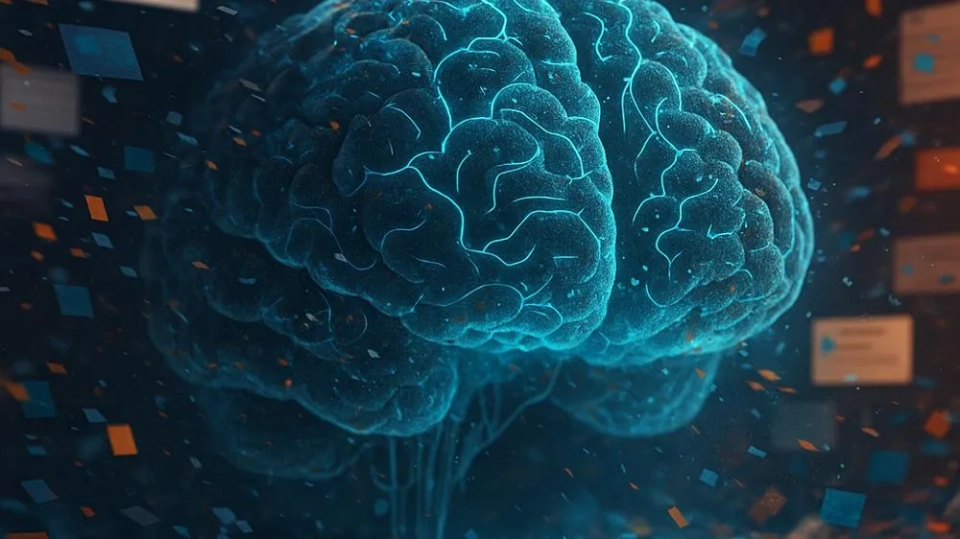Technologies That Restore Hope: How Telemedicine Helps People with Dementia
Natasha Azzopardi-Muscat, Director of Health at the WHO European Office, notes: "Technologies are not just healthcare tools. They can connect people and instill hope."
Such digital solutions are particularly important in rural areas, where access to medical professionals is significantly limited. These include medication reminders and artificial intelligence-based systems that help prevent falls and improve the quality of care.
The study was based on an analysis of nearly 100 scientific reviews and 3,000 publications; however, the authors emphasize that more data is needed for the effective implementation of new technologies.
"Digitalization helps older adults maintain independence, safety, and social connections. It reduces stress for both patients and their relatives, decreases the number of falls by 63%, and contributes to the improvement of behavioral symptoms," the study states.
David Novillo Ortiz, Digital Health Advisor at the WHO European Office, adds: "Even a slight improvement in mental health can slow down degradation and reduce dependence on external assistance."
Illustration on the main page: Unsplash/Steven HWG.
Read also:
The Ministry of Health and WHO discussed the implementation of AI and digital solutions in the healthcare system
The Minister of Health, Erkin Checheybaev, held a meeting with David Novillo, who is an advisor on...
Kyrgyzstan Strengthens Cooperation with WHO in the Field of AI and Digital Health
Negotiations of the Minister of Health of the Kyrgyz Republic with a WHO Representative...
In Kyrgyzstan, the Issues and Prospects of Using Artificial Intelligence in Healthcare Have Been Studied
A study dedicated to the issues of using artificial intelligence (AI) in medicine has been...
In Kyrgyzstan, medical waste is still dumped in landfills and burned without control
The development of an effective medical waste disposal system in Kyrgyzstan requires digital...
Every third resident of Kyrgyzstan suffers from high blood pressure
According to the report by Deputy Minister of Health Bubuzhan Arykbaeva, a study conducted in 2023...

Intelligent Learning Can Accelerate Global Efforts to Prevent Cervical Cancer
A study involving 369 medical professionals from China, Mexico, and Mongolia found that the use of...
The Minister of Health met with the Swedish delegation during the 75th session of the WHO
The Minister of Health Erkin Checheybaev held a meeting with a delegation from Sweden in...
One in Five Children in Kyrgyzstan Has Elevated Blood Lead Levels. Why Is This Dangerous?
According to the Republican Center for Health Promotion, 21% of children in Kyrgyzstan have blood...
In Kyrgyzstan, almost 70% of the population leads a sedentary lifestyle. Why is this bad?
According to a recent study, more than 68% of the population of Kyrgyzstan (specifically 68.3%) do...

A Simple Way to Improve Well-Being
A study conducted by scientists from the University of Texas at Arlington and Monash University...
Study: The Number of Cancer Cases Related to Obesity is Rising
A recent global study indicates an increase in cancer cases among youth worldwide, with obesity...
Most Kyrgyzstanis Do Not Follow Recommendations on Nutrition and Physical Activity, - Study
According to the data from the STEPS-2023 study, 75.9% of residents in Kyrgyzstan do not meet the...
How Many Steps Are Needed for a Healthy Heart? A Study
According to a new study, older adults do not need to walk a large number of steps daily to improve...

Kyrgyzstan Strengthens Cooperation with WHO in the Field of Digital Health and AI
In Copenhagen, during the 75th session of the Regional Committee of the World Health Organization...
How the national digital ecosystem will work, specialists explained
The draft resolution "On Approving the Regulations for the National Digital Ecosystem"...
The genetic testing system for kidney transplantation is being implemented at the NCOMD.
The National Center for Maternal and Child Health (NCMCH) is for the first time beginning to use...
Sharp pressure drops may be linked to accelerated brain aging, -study
A study conducted by specialists from the University of Southern California has shown that even...
Kyrgyzstan Expands Honey Exports Through Digitalization and "Green" Technologies
- In Kyrgyzstan, the "Trade Facilitation" project is helping to develop online sales of...
Almost 76% of Kyrgyzstanis eat fewer vegetables and fruits than recommended by WHO
According to data presented in the report by Bubuzhan Arykbaeva, Deputy Minister of Health, 75.9%...

Men need to exercise twice as much as women to have a healthy heart
A study conducted by a group of scientists from China has shown that women engage in physical...
One in Five Children in Kyrgyzstan Has Elevated Blood Lead Levels - Analysis
The National Institute of Public Health (NIOZ) presented a report on the results of a study...
Lead and Our Children. Lead Found in the Blood of Many Children in Kyrgyzstan
The specialists of the Republic Center for Health Strengthening reported that 21% of children in...
Depression May Accelerate the Deterioration of Memory and Cognitive Functions - Study
In a study conducted by scientists from China, it was found that depressive states may contribute...

AI has gone crazy from TikTok and clickbait. Scientists have discovered "brain rot" in neural networks.
As the research shows, when trained on low-quality data, neural networks begin to demonstrate a...
President of the International Association of Gerontology and Geriatrics Reveals the Worst Enemy of Aging
The President of the International Association of Gerontology and Geriatrics, geriatrician José...
In Uzbekistan, the Legal Foundations for the Use of Artificial Intelligence Have Been Established
At the eleventh plenary session of the Senate of the Oliy Majlis, the draft law "On Amendments...
Kyrgyzstan Presented Its Experience in the Prevention of Non-Communicable Diseases at the 75th Session of the WHO European Regional Committee
At the 75th session of the European Regional Committee of the World Health Organization, taking...
Scientists have created a neuroimplant that restores vision even in complete blindness
A team of international researchers has developed a neuroimplant measuring just 2×2 mm, which is...

The Hidden Danger of City Life for Health Has Been Revealed
A study conducted by scientists from the University of Zurich (UZH) revealed that living in urban...
Why Most Teenagers with Addiction Do Not Reach the Doctors at the Addiction Treatment Center
As reported at the briefing by the head of the department, Tinatin Sagymbaeva, during the specified...
Scientists have determined how many steps elderly people need to take each day
A new study published in the British Journal of Sports Medicine debunks the myth that one must walk...

More and more Kyrgyz citizens are suffering from obesity.
In 14 years, the number of people in Kyrgyzstan whose weight significantly exceeds the norm has...
In Bishkek, training on data analysis and utilization in the healthcare sector is being conducted with the support of WHO.
From October 28 to November 3, a series of training sessions was organized in Bishkek, aimed at...
The WHO proposed a way out of the healthcare financing crisis for countries
The World Health Organization (WHO) has released new recommendations for countries facing a sharp...
Who Needs to Get Vaccinated Against the Flu? Medical Recommendations
Experts from the Bishkek Health Strengthening Center shared information about vaccination against...

In Naryn, the first high-tech mountain hospital in the country will be established to treat cardiovascular diseases.
In Kyrgyzstan, a memorandum of cooperation was signed between the National Center for Cardiology...

Kyrgyzstan and Sweden Strengthen Cooperation in the Field of Digital Medicine
At the 75th session of the Regional Committee of the World Health Organization for the European...
"Social Media Doesn't Show Reality." A Psychiatrist on How the Internet Affects Mental Health
Yulia Ulitina, a psychiatrist, spoke on "Birinchi Radio" about the negative impact of...
International Study: AI Systematically Distorts News
According to information from EBU and BBC, the study involved 22 public broadcasters from 18...

Pros and Cons of Distance Online Learning in Kyrgyzstan
In this article, we would like to identify the pros and cons of distance online learning in...
Mass Mutations Detected Among Uzbeks Due to Marriages Between Relatives
In Uzbekistan, the first large-scale study of the human genome in the country's history has...
In the At-Bashinsky District, the lives of elderly people are being improved with the participation of volunteers
In the At-Bashinsky district, an event dedicated to elderly people took place at the "Uluu...